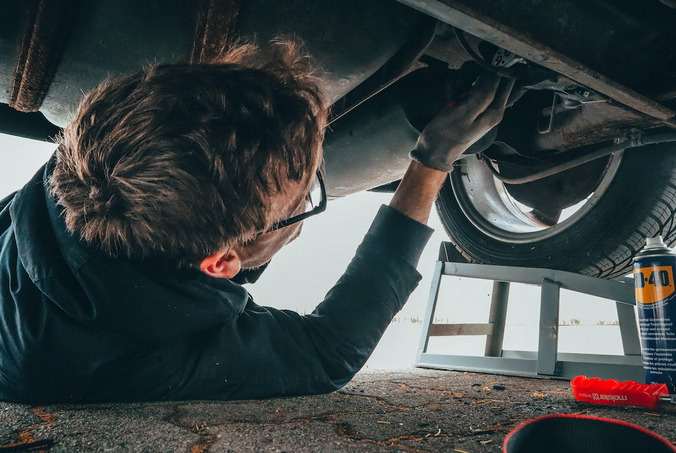Renting a car for the first time can be an exciting yet daunting experience. From selecting the right vehicle to understanding rental policies, there are a few important things to keep in mind to ensure a smooth experience. Whether you’re planning a road trip or need a car for business travel, here’s a helpful guide on what you need to know before you rent a car for the first time.
Do You Need an International Driving Permit (IDP)?
While many countries accept your home driver’s license, others require an IDP as an official translation. Be sure to verify this requirement before you travel, as it’s an essential document when renting a car internationally. The IDP is easy to obtain and can usually be requested through your local automobile association. It’s also important to note that the IDP must be accompanied by your regular driver’s license, as the permit alone is not sufficient.
Valid Driver’s License: Your Key to the Rental Car
Before you can rent a car, you must have a valid driver’s license. This might sound obvious, but make sure your license is up to date and in good standing. Some rental companies may require you to have held your license for at least one or two years, so check ahead if you’re a new driver. International travelers should also remember to bring both their local license and IDP (if required) when renting abroad.
Credit Card or Debit Card: What’s Accepted?

Most car rental companies require a credit card for the security deposit, which is usually held until the car is returned. The amount of the deposit can vary, depending on the car class and rental terms. Some companies also accept debit cards, but this might come with additional restrictions, such as a higher deposit or proof of return travel plans. It’s crucial to confirm the payment options available and ensure you have sufficient funds on your card.
Insurance Coverage: What You Need to Know
Insurance is an important aspect of renting a car. Most rental companies offer several types of coverage, such as Collision Damage Waiver (CDW), Theft Protection, and Liability Insurance. While you can purchase insurance directly from the rental company, check if your personal car insurance or credit card offers rental car coverage. This can save you money and give you peace of mind while driving. Always read the fine print of any insurance policy to ensure you’re fully protected.
Additional Fees and Costs: Be Prepared
When renting a car for the first time, it’s essential to be aware of any extra fees that might not be included in the initial quote. Common additional charges include airport surcharges, fuel fees, and fees for additional drivers. Many companies offer extras like GPS, car seats, or toll passes, but these come at an extra cost. Be sure to ask about all potential fees upfront so that you’re not caught off guard when returning the vehicle.
Early Booking: Save Money and Hassle

One of the best tips for first-time car renters is to book early. Rental prices can fluctuate, especially during peak travel seasons or at popular destinations. Booking in advance not only saves you money but also ensures that you get the car class you want. Many rental companies offer discounts or promotions for early bookings, so it pays to plan ahead.
Age Requirements: Are You Old Enough to Rent a Car?
Age is another key factor when renting a car. Most rental companies require drivers to be at least 21 years old. However, some rental agencies may have higher age limits, such as 25, especially for certain vehicle types. If you’re under 25, expect to pay an additional “young driver” fee, which can vary depending on the company and location. It’s always a good idea to check the rental company’s specific age policies to avoid surprises.
The Fuel Policies: Know Before You Drive Off
Different rental companies have different fuel policies. The most common options include “full-to-full,” where you pick up the car with a full tank and return it full, or “prepaid fuel,” where you pay for a full tank upfront and return the car empty. Full-to-full is often the most cost-effective option, as you’re only paying for the fuel you use. Make sure to clarify the fuel policy to avoid any unexpected refueling charges.
Renting a car for the first time doesn’t have to be complicated. By knowing the essential requirements, such as having the right documentation, understanding insurance options, and being aware of fees, you’ll be well-prepared for a hassle-free rental experience.…







 The last tip to increase your car’s engine performance is to ensure the engine’s compression remains good. Compression helps ensure an efficient combustion process and can help maximize power output. If your vehicle has low compression, you should get it checked out or consider replacing the piston rings. There have been instances where low compression can be fixed with a simple tune-up, so it’s always worth getting your vehicle checked for any issues before doing more extensive work. This will save you time, money, and effort in the long run.
The last tip to increase your car’s engine performance is to ensure the engine’s compression remains good. Compression helps ensure an efficient combustion process and can help maximize power output. If your vehicle has low compression, you should get it checked out or consider replacing the piston rings. There have been instances where low compression can be fixed with a simple tune-up, so it’s always worth getting your vehicle checked for any issues before doing more extensive work. This will save you time, money, and effort in the long run.